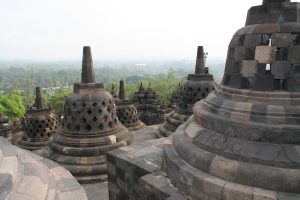When Indonesian President Joko Widodo unveiled the governing cabinet for his second term in October 2019 it was met with controversy. The cabinet featured many appointments which appeared transactional in nature, with Jokowi perceived as rewarding powerful political, business, and military figures who had backed him in the election or whose support he needed in the legislature. The most high-profile appointment was that of Prabowo Subianto, his long-time electoral foe, to run the Ministry of Defense.
Shortly before the New Year, Jokowi reshuffled this cabinet. It was something of a necessity, as two of the ministers he appointed – Edhy Prabowo and Juliari Batubara – had been arrested on corruption charges and needed replacing. Not surprisingly, Health Minister Terawan Agus Putranto was also swapped out as he had come under widespread criticism for his handling of COVID-19. But the real headline-grabber was the appointment of Sandiaga Uno, Prabowo’s running mate in 2019, to head up the Ministry of Tourism and Creative Economy.
This means everyone who ran for president or vice president in 2019 now holds some senior position in the government, even the ones who lost. This could be seen as a symptom of pure patronage politics and democratic erosion: what’s the point of elections if everyone ends up in the government anyway? But there is a fairly shrewd political calculus at play here as well, and it’s not so obvious that giving this portfolio to Sandiaga Uno is an unqualified instance of political patronage.
For one, the Ministry of Tourism is not traditionally a high-profile portfolio like the Ministry of Defense, Transportation, or Energy. Indeed, the organizational structure and mission of the Ministry has changed pretty much continuously from president to president, and even from cabinet to cabinet. In his first term Jokowi planned to spin off the creative economy part of the ministry so it could focus solely on tourism promotion. Now, as mysteriously as it disappeared, the creative economy component is back. So it’s not a stable portfolio that has a history of making its leaders into political stars.
Secondly, the road ahead for Sandiaga Uno in reviving Indonesia’s tourism industry is going to be very fraught and monumentally challenging. It’s unclear when free and unfettered international travel will return to Indonesia, and even once the virus is under control and planes are flying again the impact and extent of business closures and labor disruption in the interim is currently unknown. When will people feel comfortable booking vacations in Indonesia again? We simply don’t know how quickly these things will snap back, and there is a good chance the sector will recover more slowly than optimistic projections are suggesting.
Sandiaga Uno is young, charismatic and likely to play some important role in the 2024 elections. By bringing him into the cabinet and tasking him with leading the recovery of Indonesia’s tourism sector, Jokowi is making a fairly shrewd play. If successful, he can tie a promising future political figure to his governing coalition. On the flip side, he also has a convenient fall guy should the industry fail to turn around quickly enough.
So far, Sandiaga has indicated he will double down on developing priority destinations such as Mandalika and Labuan Bajo, which are somewhat controversial. Resort developments in Labuan Bajo, the gateway to the famed Komodo dragons, have to walk a fine line between commercial interests and environmental protection. Meanwhile, in Mandalika the construction of a MotoGP circuit factory has been delayed by land disputes. Even without a pandemic these projects would be difficult to navigate, as there are many competing interests to balance. They are however very much in line with the Jokowi administration’s overall strategy for post-pandemic recovery: cutting through regulatory barriers to lasso investment and capital inflows as the main engines of growth.
Whether it will work or not remains to be seen, as does whether and how Indonesia’s Tourism Ministry under Sandiaga will rebalance its efforts toward domestic tourism (the industry’s only lifeline for nearly a year now). It will be interesting to see how the new minister balances the domestic market and concerns about sustainability and over-development against the investment-first imperatives coming from the top echelons of the administration he has now yoked his fortunes to.
No matter how you slice it, with international tourism basically re-starting from zero, juggling all of these plates won’t be easy. But if the tourism sector springs back to life in 2021 under Sandiaga Uno’s leadership, he will be well-placed to champion this accomplishment in 2024 and position himself as a successor to Jokowi. And if the sector doesn’t turn around quite so nimbly and if the priority destinations fail to bear fruit, from Jokowi’s perspective who better to take the blame than your former electoral foe?
































